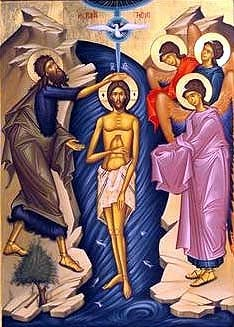First of all, then, I urge that supplications, prayers, intercessions, and thanksgivings be made for all men, for kings and all who are in high positions, that we may lead a quiet and peaceable life, godly and respectful in every way. This is good, and it is acceptable in the sight of God our Savior, who desires all men to be saved and to come to the knowledge of the truth. For there is one God, and there is one mediator between God and men, the man Christ Jesus, who gave himself as a ransom for all, the testimony to which was borne at the proper time. For this I was appointed a preacher and apostle (I am telling the truth, I am not lying), a teacher of the Gentiles in faith and truth. I Timothy 2: 1-7
No, that isn’t a mistake, receiving a message about the New Year in the middle of summer. That’s because September 1 marks the beginning of the Ecclesiastical or Church Year. It wasn’t until the 16th Century that January 1 was regarded throughout Europe as the beginning of the New Year. Up until then, in most of the Christian world, September 1 was the beginning of the Ecclesiastical (or Church) Year.
Up until recent centuries, society was primarily an agrarian society, so the September 1 date as the demarcation between years made sense from the perspective of farmers. Towards the end of summer, crops were harvested and put into storehouses. This was followed by the sowing of seeds for the crops for the next season. September 1 marked the end of the harvest and the beginning of the planting season. His All Holiness Ecumenical Patriarch Bartholomew in recent years has declared September 1 not only to be the day of the Ecclesiastical New Year but also the Day of Environment.
In modern times, September 1 feels more like a beginning than January 1. Schools begin around September 1 (and in even more recent years, in August), so as families we adjust to new grades, programs and schedules. It is a time to get back “into the swing of things” after the summer break. Spiritually, it is a good time to get back to some basics as well as to set some goals.
The Epistle lesson from September 1 reminds us of some basics. Saint Paul reminds us who he is, and what we are to do as Christians. First, the basic way we connect with God is through prayer. Thus, in his Epistle to Timothy, Saint Paul reminds us that “supplications, prayers, intercessions and thanksgivings be made for all men, (I Timothy 2:1) from kings and people in high positions to everyone else, leading “a quiet and peaceful life, godly and respectful in every way.” (2:2) In verse 4, he reminds us that God “desires all men to be saved and to come to the knowledge of the truth.”
Saint Paul reaffirms that that there is one God, and one mediator between God and humanity. His word choice “the man Christ Jesus” (2:5) is interesting, in that it affirms Jesus as both a man and as the Christ, the Messiah. Finally, Saint Paul identifies himself as one who has been appointed as a preacher and an apostle, and that his mission is to teach the Gentiles, so that all can come to an understanding of the Faith.
This passage, while it seems elementary in content, reminds us that there two basic things that Christians do, which are in line with the two great commandments—to love God and to love one another. In reaffirming who God is, it helps us to understand who the God is Whom we are to love and serve.
The number one “work” of the Christian is to pray—to develop a personal relationship with Christ through prayer and then to pray for one another. When we work without prayer, whether we live our lives without a relationship with Christ, then our work can become self-serving, and our lives as they ebb and flow lack purpose and direction.
In January, many of us make resolutions for the New Year. We set goals. We seek to simplify things. We get back to basics, to what is really important. Thankfully, God gives us many opportunities for new starts. We get new years, new months, and each morning when we wake up, we get a new day, a new chance to glorify Him. Any day is a good day to make a new start.
As you go about your day today, purposefully remember two basic things—First, God loves us and wants us to love Him. Second, God asks us to love others, and to serve Him by serving others. There are two words to remember today—purposeful and intentional. In reflection on the word “purposeful” remember our purpose throughout this day—that God made us so that we could experience love—so that we could love Him and love one another. This is our purpose. Secondly, as you reflect on the word “intentional,” remember to go out of your way, intentionally, to love others, to serve others. Imagine, as you serve others, that Jesus is standing at your side and that you are serving Him. In doing so, you’ll fill God’s two great commandments.
O Fashioner of all creation, who made seasons and years by Your own authority, bless the crown of the year with Your goodness, O Lord, and preserve our rulers and Your city in peace, at the intercession of the Theotokos, and save us. (Apolytikion, Feast of the Indiction, Trans. by Fr. Seraphim Dedes)
Purposefully love God and intentionally serve others today!
The Revised Standard Version of the Bible is copyrighted 1946, 1952, 1971, and 1973 by the Division of Christian Education of the National Council of the Churches of Christ in the U.S.A. and used by permission. From the Online Chapel of the Greek Orthodox Archdiocese of America.

